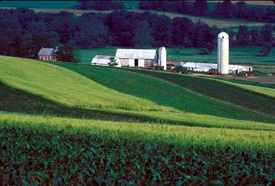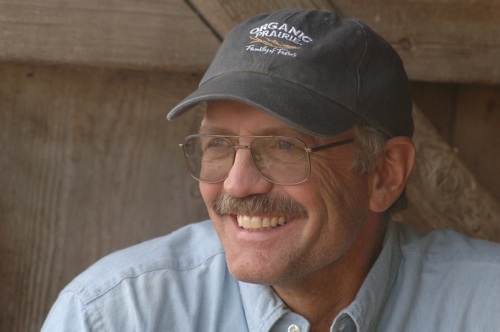CRL featured in US Catholic article on GMOs
The debate over genetically modified organisms, or GMOs, is heating up in America. Although many Europeans have banned the use of GMOs in many food products, this vital issue is only just starting to get attention in the States, and the  magazine US Catholic recently published an article exploring the pros and cons of GMOs in agriculture from a Catholic perspective.
magazine US Catholic recently published an article exploring the pros and cons of GMOs in agriculture from a Catholic perspective.
CRL’s role in monitoring the use of GMOs since their introduction in the 1990s features prominently in the article. CRL executive director Jim Ennis is noted as emphasizing the moral nature of eating, a reality that underscores the need to approach food production with more than a utilitarian calculus. “Gratitude, generosity, and stewardship should pervade our relationship to the land,” says Ennis, highlighting some of the additional factors one needs to take into account when evaluating the moral efficacy of GMO use.
Also featured in the article is Ron Rosmann, an Iowa farmer who is CRL board member. Rosmann highlights a number of concerns with GMO use, including the increased use of herbicides and pesticides as part of the GMO program. “Our role is stewardship,” he emphasizes, “and that idea is critical to the land’s health. Where is the humility and realization that Mother Nature will ultimately fight back when under attack?”
concerns with GMO use, including the increased use of herbicides and pesticides as part of the GMO program. “Our role is stewardship,” he emphasizes, “and that idea is critical to the land’s health. Where is the humility and realization that Mother Nature will ultimately fight back when under attack?”
Rosmann believes the “counter-attack” of nature against GMOs is already occurring, pointing out that many insects and weed strains are becoming resistent to the chemicals used to aid in the growth of GMOs. Because GMOs are a “monoculture,” organisms that are genetically identical, one disease or pest that proves resistent to herbicides and pesticides could devastate the food supply.
The debate over GMO-use is fascinating–and also a critical one. The long-term consequences of GMO use are still unknown, and while the use of these products appears to have a number of benefits, Catholics and others must consider at what expense these gains come. CRL will continue to monitor the use of GMOs and the surrounding conversation, always emphasizing the need to include moral considerations of food production and stewardship in any decision.















